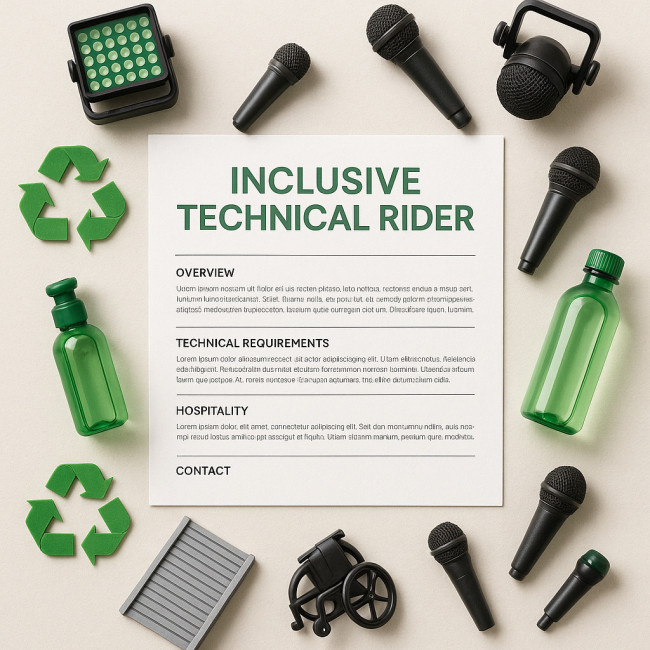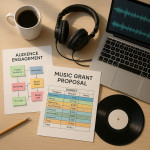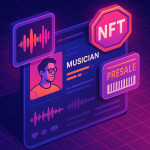Inclusive technical riders: gear, accessibility and sustainability in one sheet
An inclusive technical rider is more than a gear wish-list. It is a one-sheet document that spells out equipment, accessibility requirements and sustainability standards in language every venue, producer and technician can action. Master it and you shorten prep time, lower last-minute costs and signal professional credibility before you even arrive on site.
Why an inclusive technical rider is the new industry standard
Producers, bookers and venue managers juggle tight turnarounds. A clear, inclusive technical rider makes their lives easier and earns you repeat work. It:
- Eliminates back-and-forth emails about basic gear specs.
- Protects the comfort and safety of every team member, including disabled crew and audience members.
- Shows you respect environmental targets—an expectation reinforced by frameworks like ISO 20121 for sustainable events.
- Acts as a brand asset you can send alongside your portfolio on Artfolio's musician directory or any casting platform.
Key pillars of an inclusive technical rider
1. Gear clarity without bias
List equipment in tiers: Essentials (non-negotiable) and Preferences (nice-to-have). Add brand-agnostic descriptors so regional suppliers can match equivalents without stress. For deeper research on low-impact rigs, skim our eco-friendly gear guides.
2. Built-in accessibility
- Provide seating dimensions, stage ramp gradients (1:12 minimum) and request tactile markers for edge safety.
- Include sign-language interpreter sight-lines and caption feed positions.
- Offer alternative file formats (braille, large print, screen-reader-ready PDF). Need more inspiration? Check the accessibility wins checklist.
3. Sustainability baked in
An inclusive technical rider gains extra weight when it mentions carbon and waste goals. Typical clauses:
- Specify LED lighting and power-efficient backline amps.
- Request reusable stage dressing and recyclable gaffer tape alternatives.
- Ask for local catering with plant-forward menus to cut freight miles.
- State no single-use plastic water bottles—bring refill stations instead.
Touring soon? Pair your rider with this green touring checklist to show promoters you walk the talk.
Sample one-sheet template
| Section | Must-have details | Inclusive tip |
|---|---|---|
| Contact | Name, role, 24 h phone, pronouns | Include a WhatsApp number for low-bandwidth regions |
| Essentials | Microphones, DI boxes, backline, monitor mix | Add dB limits to protect hearing-assist devices |
| Stage plot | Graphic PDF with clear legends | Colour-blind-safe palette (#95854c & #555555) |
| Accessibility | Ramp angle, aisle width, interpreter position | Mark wheelchair turnaround circles (150 cm) |
| Sustainability | Lighting type, water policy, waste sorting | Request CO₂ footprint report post-show |
| Hospitality | Meal times, dietary needs, green room access | Ask for compostable cutlery where disposables required |
| Insurance & safety | Liability coverage limits, emergency exits | Reference venue mental-health first-aid contact |
Actionable checklist before you send your next rider

Before you dive into the tick-box list, take a moment to picture how each line item will land in the inbox of a rushed venue tech. The clearer your wording, the fewer mid-night phone calls you'll field. Frame your goals as benefits: LED fixtures mean lower power draws, ramp specs prevent injury claims, and local catering tastes better than reheated freight meals. Investing ten extra minutes here will pay back hours once load-in starts.
- Audit current gear: replace power-hungry fixtures with LED equivalents.
- Run an accessibility walkthrough of the venue sketch using free AR apps.
- Convert your rider into a one-page PDF under 500 kB for mobile loading.
- Add QR codes linking to stage plot, safety certificate and a gear redundancy tactics list.
- Invite venue feedback, then version-control the file (v1.3, v1.4) to avoid confusion.
Quiz: Are you rider-ready?
FAQ
- How long should an inclusive technical rider be?
- Keep it to one page plus a separate stage plot. Brevity speeds approvals and printing.
- Can I charge extra for green requirements?
- Usually no. Instead, highlight long-term savings such as lower power bills to get venue buy-in.
- What if a venue cannot meet my accessibility specs?
- Discuss temporary fixes—portable ramps, caption screens—or negotiate a reduced fee if compliance is impossible.
- Do digital riders replace printed copies?
- Digital first is wise, yet bring two printed copies in case of network outages.
- How often should I update the rider?
- Review every quarter or after major gear purchases to avoid outdated information.
Ready to upgrade? Craft your next inclusive technical rider today and attach it to every booking email. You will notice faster confirmations, smoother load-ins and happier crews. For a free editable template, join our mailing list now.











